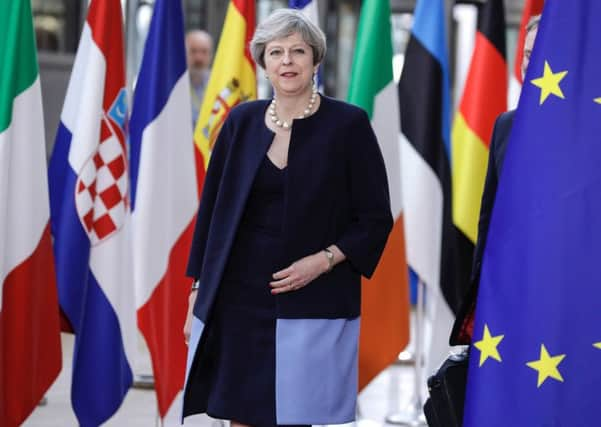Comment: Brexit battle fatigue may be setting in already


These are the all-too-familiar catchphrases, first announced in Downing Street when she became prime minister a year ago. She hopes their reiteration will give a sense of unity and purpose to a premiership severely holed by an election result that left her with no overall majority and scrambling to reach a controversial deal with the DUP. Its hard to see at present why the opposition parties should extend much if any practical support. The Scottish Government has made clear Mrs May would have to re-open talks with devolved administrations and compromise on leaving the EU single market and customs union.
For Labour, political benefit surely derives from keeping a highly fragile administration on constant crisis alert and vulnerable to opportunistic attack. And while they may express some support in principle for the areas of action that the Prime Minister has set out, there is little likelihood whatever of any cross-party agreement without far more specific suggestions. But even here she may even struggle to win the steadfast commitment of her own back benchers. And “steadfast” is hardly the word to describe their current mood.
Advertisement
Hide AdAdvertisement
Hide AdThere are mounting questions over how her minority government will deliver a beneficial Brexit deal and little sign of compromise on Conservative ‘red lines’. There have been growing calls for a transitional arrangement and a Norway style deal that would keep the UK inside the EU single market. Pro-Brexit Tory MPs have pushed back against these. But restiveness within the party is evident, with former Conservative chief whip Andrew Mitchell, reported to have described Mrs May as “dead in the water”.
Separately, the likely Liberal Democrat leader Sir Vince Cable said he believed Brexit “may never happen” because of the difficulty in striking the right deal and getting it through a divided parliament.
In this, he may have uttered the darkest thoughts of a number of pro-Remain Conservative back benchers sympathetic to compromise. Not least of the problems now facing Mrs May is that, even though Brexit negotiations have barely begun, battle fatigue may already be setting in and the ranks of doubters may swell from here.